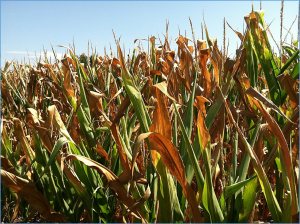
Friday, 2024/04/26 | 07:54:36
High temperatures are increasingly becoming a prominent environmental factor accelerating the adverse influence on the growth and development of maize (Zea mays L.). Therefore, it is critical to identify the key genes and pathways related to heat stress (HS) tolerance in maize. Great challenges have been faced in dissecting genetic mechanisms and uncovering master genes for HS tolerance.
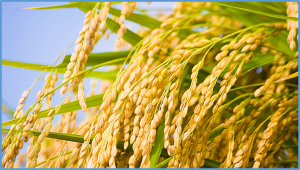
A dataset for analyzing the climate change response of grain quality of 48 Japanese rice cultivars with contrasting levels of heat tolerance
Friday, 2024/04/26 | 07:52:41
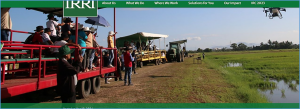
Aimed at leveraging the power of drone technology to boost farmers’ productivity and sustainability, the International Rice Research Institute (IRRI) and the Department of Agriculture - Philippine Rice Research Institute (DA-PhilRice) have launched the Drones4Rice Project during the Inception Workshop held at the IRRI Headquarters in Los Baños, Laguna on 16-17 April 2024.
-
ADB, CGIAR join forces to boost and scale agricultural innovations in Asia
Thursday, 2024/04/25 | 07:51:17 -
Full diplomatic status to boost research and food security efforts in Zambia
Wednesday, 2024/04/24 | 08:05:48 -
Driving efficiency and productivity in Africa`s agriculture sectors requires strategic partnerships, greater investments, and the power of digital technologies
Tuesday, 2024/04/23 | 08:28:11 -
New CRISPR Tool Unlocks Potential to Combat Infectious Diseases
Monday, 2024/04/22 | 08:15:17
Friday, 2024/04/26 | 07:54:36

High temperatures are increasingly becoming a prominent environmental factor accelerating the adverse influence on the growth and development of maize (Zea mays L.). Therefore, it is critical to identify the key genes and pathways related to heat stress (HS) tolerance in maize. Great challenges have been faced in dissecting genetic mechanisms and uncovering master genes for HS tolerance.
-
A dataset for analyzing the climate change response of grain quality of 48 Japanese rice cultivars with contrasting levels of heat tolerance
Thursday, 2024/04/25 | 07:53:01 -
The grapevine miR827a regulates the synthesis of stilbenes by targeting VqMYB14 and gives rise to susceptibility in plant immunity
Wednesday, 2024/04/24 | 08:07:40 -
Carbon starvation raises capacities in bacterial antibiotic resistance and viral auxiliary carbon metabolism in soils
Tuesday, 2024/04/23 | 08:30:41 -
Engineered, nucleocytoplasmic shuttling Cas13d enables highly efficient cytosolic RNA targeting
Monday, 2024/04/22 | 08:17:07
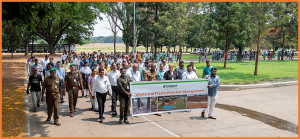
Dr Jacqueline Hughes, Director General of ICRISAT, announced the initiative timed to coincide with Earth Day on April 22. "In a week's time, we will eliminate all single use plastic items across our campus, and minimize the use of any disposable plastic items. This action underlines our commitment to this year's Earth Day theme, Planet vs. Plastics," stated Dr Hughes.
-
Strengthening agricultural development in Cameroon through stakeholder engagement
Thursday, 2024/04/25 | 07:52:00 -
Enhancing food safety by adopting postharvest technologies: A case study of PICS bags in Tanzania
Wednesday, 2024/04/24 | 08:06:37 -
Planet vs. Plastics Global Theme for Earth Day 2024
Tuesday, 2024/04/23 | 08:29:35 -
Researchers Develop Chip for Accurate Soil Nutrient Analysis
Monday, 2024/04/22 | 08:15:56
Mr. Phạm Thành Nhân, Dong Thap Muoi Research and Development Centre, leaving for IRRI, the Philippines, to join the three-month training course by IRRI from November 13, 2019 to January 21, 2020
-
Going Abroad in October 2019
Tuesday, 2019/11/05 | 09:50:01 -
Going Abroad in September 2019
Friday, 2019/10/04 | 08:27:35 -
Going Abroad in August 2019
Thursday, 2019/09/05 | 10:42:34 -
Going Abroad in June 2019
Tuesday, 2019/07/02 | 15:49:57
Mr. Li Jianqiang (Director), Ms. Feng Chunmei (Technical Director), Mr. Tan Yewei (Business Manager) - Subtropical Crop Research Institute, QuangXi, China, paid a short visit how to cooperate with the IAS about crop production and consumption, November 12, 2019.
-
IAS Visitors in September 2019
Friday, 2019/10/04 | 08:28:22 -
IAS Visitors in August 2019
Thursday, 2019/09/05 | 10:43:14 -
IAS Visitors in June 2019
Tuesday, 2019/07/02 | 15:50:34 -
IAS Visitors in May 2019
Monday, 2019/06/17 | 08:09:58
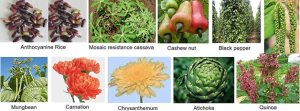
In 2023, the IAS has conducted 34 R&D activities with the total budget of VND 22.58 billion.
The outputs are as followed:
- Thirteen research articles were received and published in Vietanamese journals.
- Nine new crop varieties have developed including 3 varieties of cashewnut; 2 potato; 3 chrysanthemum; 1 carnation (Dianthus caryophyllus)
-
Seminar and workshop in March 2023
Tuesday, 2023/04/04 | 08:10:18 -
Seminar and Workshop in February 2023
Tuesday, 2023/04/04 | 08:09:09 -
Seminar and Workshop in January in 2023
Tuesday, 2023/02/14 | 08:15:10 -
Seminar and Workshop in December 2022
Tuesday, 2023/02/14 | 08:14:03
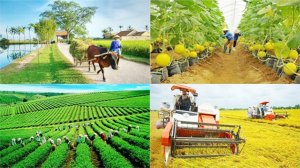
Vietnam is striving to take stronger measures to achieve “net-zero emissions” by 2050. Agriculture has been recognized as a bright spot in the economic development of 2023. Economic and market intelligence played an important part in the sector's growth last year. Traditionally, farmers focused on how to improve production, but higher yields did not always translate to increased income. As prices fluctuate, they may produce more but gain less.
-
Vietnam agriculture in 2022: Switching to an agricultural economy
Thursday, 2023/03/16 | 10:37:17 -
Vietnam Agriculture in 2021 to Smoothly Achieve Its Mandates
Wednesday, 2022/01/12 | 13:31:07 -
Vietnam Agriculture in 2020 to Overcome Its Double Challenges as Covid-19 Pandemic & Climate Change
Thursday, 2021/01/14 | 08:15:31 -
Vietnam Agriculture in 2019 - How To Help Farmer Be Rich -
Thursday, 2020/01/16 | 09:42:44
Address: 121 Nguyen Binh Khiem, District 1, HCM City, Vietnam
Tel: +84.8. 38291746 – 38228371 Fax: +84.8.38297650
Website : http://iasvn.org - Email: iasvn@vnn.vn


 Curently online :
Curently online :
 Total visitors :
Total visitors :
